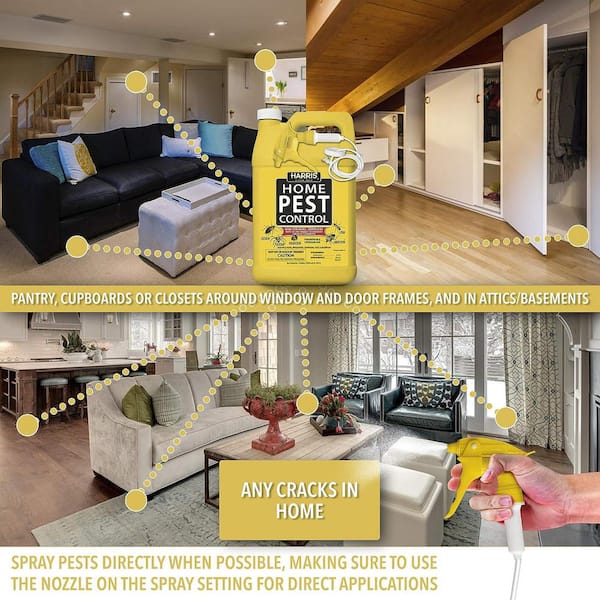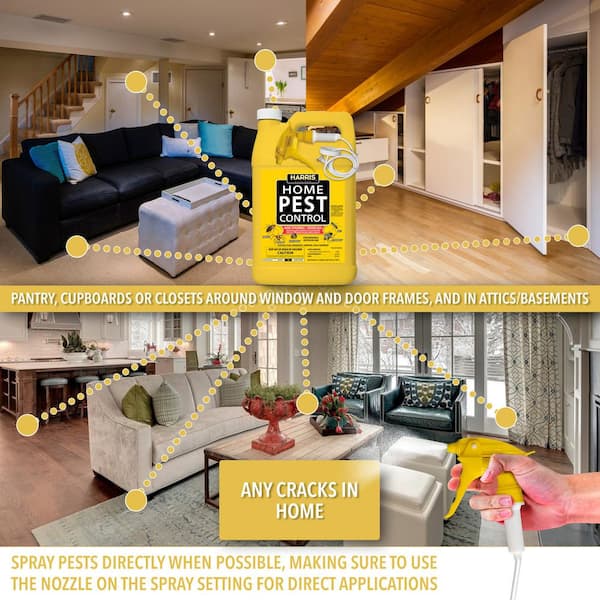Yes, pest control sprays can be used in closets to eliminate pests. Pests such as moths, roaches, and spiders can often find their way into closets and wreak havoc on clothing and other stored items.
Using pest control sprays in closets can help to effectively eliminate these unwelcome intruders and prevent them from causing damage. However, it is important to choose a pest control spray that is safe to use in confined spaces and will not damage clothing or other items.
Additionally, it is essential to follow the manufacturer’s instructions carefully to ensure safe and effective application. Regularly using pest control sprays in closets can help maintain a pest-free environment and protect your belongings from damage.

Credit: www.amazon.com
Types Of Pest Control Sprays
Types of Pest Control Sprays:

Credit: www.homedepot.com

Credit: www.closetdecorandmore.com
Frequently Asked Questions On Does Pest Control Spray In Closets
Is It Safe To Spray Pest Control In Closets?
Yes, it is safe to spray pest control in closets as long as you follow the instructions on the product label. Ensure that the closet is well ventilated and keep clothing and other items protected from direct contact with the spray.
Will Pest Control Spray Damage My Clothes?
No, if used correctly, pest control spray should not damage your clothes. However, it’s important to follow the application instructions carefully and allow the sprayed area to thoroughly dry before returning clothes and other items to the closet.
How Often Should I Spray Pest Control In Closets?
It’s recommended to spray pest control in closets every few months as a preventive measure. However, the frequency may vary depending on the level of infestation and the type of pest control product being used. Always check the product label for specific guidelines.
Can I Diy Pest Control Spray In Closets?
Yes, you can use DIY pest control sprays in closets, but make sure to use safe and effective ingredients. Natural options like essential oils or vinegar can be effective against certain pests. Be cautious and avoid using harmful chemicals without proper knowledge or expertise.
Conclusion
Pest control sprays can effectively eliminate pests in closets, safeguarding your clothes and belongings. Proper ventilation and following instructions on the product label are essential to ensure safe use. Remember to keep clothing and other items in sealed containers for added protection.
Regular inspections and preventive measures can help maintain a pest-free environment in your closets, ensuring peace of mind and a clutter-free space.
{ “@context”: “https://schema.org”, “@type”: “FAQPage”, “mainEntity”: [ { “@type”: “Question”, “name”: “Is it safe to spray pest control in closets?”, “acceptedAnswer”: { “@type”: “Answer”, “text”: “Yes, it is safe to spray pest control in closets as long as you follow the instructions on the product label. Ensure that the closet is well ventilated and keep clothing and other items protected from direct contact with the spray.” } } , { “@type”: “Question”, “name”: “Will pest control spray damage my clothes?”, “acceptedAnswer”: { “@type”: “Answer”, “text”: “No, if used correctly, pest control spray should not damage your clothes. However, it’s important to follow the application instructions carefully and allow the sprayed area to thoroughly dry before returning clothes and other items to the closet.” } } , { “@type”: “Question”, “name”: “How often should I spray pest control in closets?”, “acceptedAnswer”: { “@type”: “Answer”, “text”: “It’s recommended to spray pest control in closets every few months as a preventive measure. However, the frequency may vary depending on the level of infestation and the type of pest control product being used. Always check the product label for specific guidelines.” } } , { “@type”: “Question”, “name”: “Can I DIY pest control spray in closets?”, “acceptedAnswer”: { “@type”: “Answer”, “text”: “Yes, you can use DIY pest control sprays in closets, but make sure to use safe and effective ingredients. Natural options like essential oils or vinegar can be effective against certain pests. Be cautious and avoid using harmful chemicals without proper knowledge or expertise.” } } ] }

